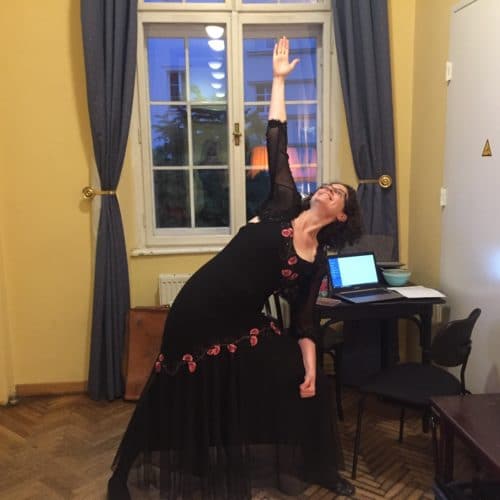The Perm Opera and Ballet Theatre confirmed today that Teodor Currentzis has ended his term as artistic director.
He will, however, remain head of its Diaghilev Festival, which will acquire an additional outlet at the Chatelet Theatre in Pairs.
He will also continue to be head of Musica Eterna ensemble, which appears to be transferring to Moscow or St Petersburg.
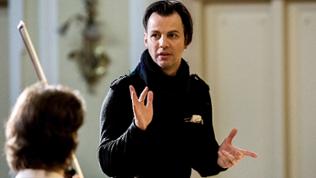
John McMurray, former head of casting at English National Opera, is first out to bat for the fallen conductor:
I have no comment to make on the allegations made by Basil Considine against Stephen Lord as I know nothing about them nor have seen any of the evidence which Mr Considine says he has. However, as ENO’s Head of Casting and then Senior Artistic Adviser between 2006-2017, I was involved in Stephen Lord’s engagement to conduct four productions for ENO. I worked closely with him on these productions, dating back to 2009, I have served with him on competition panels, and I have participated in masterclasses with him in addition to innumerable informal conversations about singers. Throughout this time not only have I never had any cause to be concerned about his behaviour but nor have I heard from singers or other colleagues any hint of such behaviour. In contrast the opera world is small and I cannot immediately think of any previous “metoo” case which particularly surprised me.
What I am certain of is Stephen’s complete artistic integrity. I do not believe he would promote any artist in whose talent he did not believe and nor would he advocate against one for non-artistic reasons. In all my dealings with him I have never had any sense of an ulterior motive in our discussions of singers. I could not say the same for every other conductor or director I have encountered.
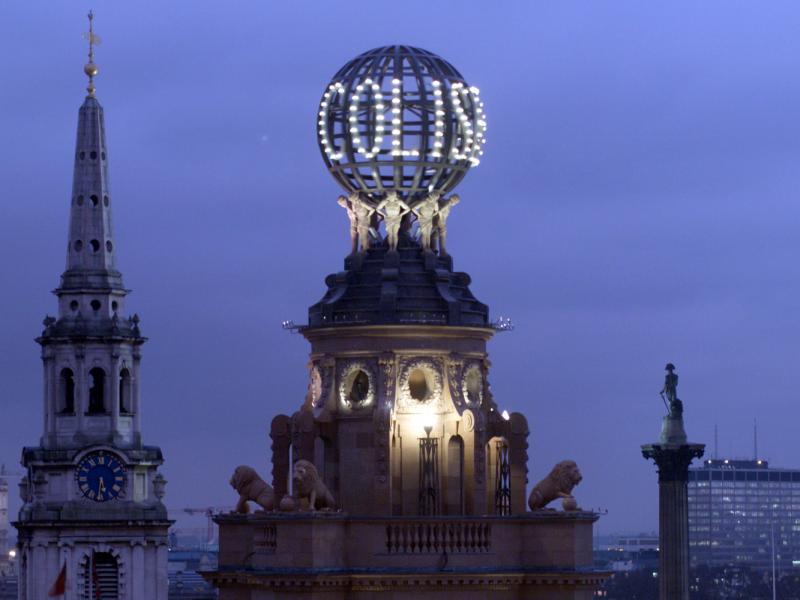
The main juries are comprised as follows:
Piano: 11 men, 0 females. chair: Denis Matsuev
Violin: 11 men, 1 female. chair: Martin Engstroem
Cello: 11 men, 2 females. chair: Clive Gillinson
Just like the bad old days.
The conductor Stephen Lord, who stepped down this week at Michigan Opera Theater after a spate of allegations, has given his first response via email to The Detroit News.
He says: ‘”I could fight all of this and I still might… Yesterday I had two of the world’s most famous opera singers, one from Moscow even, call. And three former employers. These are friends and people with whom I have lived and who know me inside and out and they were in tears seeing their friend assassinated.’
He adds: ‘It was very well-planned by whoever it is who wrote it. I appreciate the well-meaning MeToo movement and respect its goals. Ruining people must not be one of them.’
Read on here.
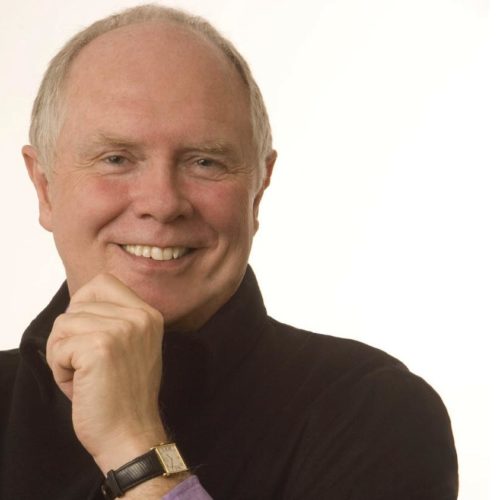
Clive Gillinson’s jury has whittled down 25 contestants to these 12:
1. Senja Elina Rummukainen (Finland)
2. Yibai Chen (China)
3. Santiago Cañón-Valencia (Colombia)
4. Anastasia Kobekina (Russia)
5. Ivan Sendetskii (Russia)
6. Haruma Sato (Japan)
7. Zlatomir Fung (USA)
8. Fedor Amosov (Russia)
9. Taeguk Mun (Republic of Korea)
10. Ivan Skanavi (Russia)
11. Jonathan Algot Swensen (Denmark)
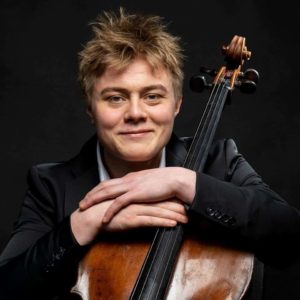
12. Caspar Benedict Kloeckner (Germany)
The international conductor Bramwell Tovey has been diagnosed with a rare cancer which (we are told) has a strong likelihood of responding to treatment. Tovey, 65, will have to manage his diary carefully in the near future, but doctors are scheduling his sessions to avoid major cancellations and he expects to fulfil most commitments.
A genial figure with a rich sense of humour, Tovey is presently principal conductor of the BBC Concert Orchestra, after 18 years with the Vancouver Symphony Orchestra. He is also in charge of the LA Phil’s Hollywood Bowl concerts.
We wish him and his family a speedy recovery.
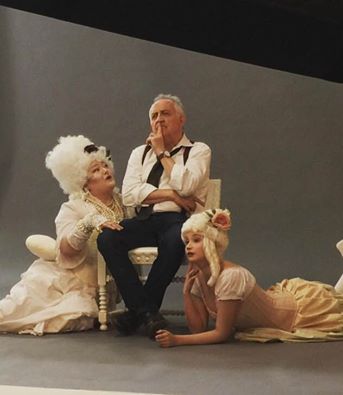
His agency issued this statement overnight:
Opus 3 Artists announced today that conductor Bramwell Tovey has been diagnosed with cancer. His doctors expect him to make a complete recovery. At the advice of his medical team, Maestro Tovey has withdrawn from select appearances while undergoing treatment. We ask for understanding and apologize in the event of any further unexpected disruptions to his conducting schedule.
After a lengthy delay due to a medical crisis in the audience, Mingjie Lei, 31, was announced shortly before midnight as winner of the £10,000 Song Prize at BBC Cardiff Singer of the World 2019.
He goes through to the main final Saturday night together with
US Bass Patrick Guetti, 31
Ukrainian baritone Andrei Kymach, 31
Korean soprano Sooyeon Lee, 30
Argentine mezzo-soprano Guadalupe Barrientos, 32
It took more than 24 hours for the BBC’s PRs to issue a press release on the finalists.
The BBC has haplessly failed to stir public interest in the competition and doubts are being expressed about its future.

Drew McManus’s track of orchestra executive earnings shows that the president of the Baltimore Symphony took home $40k less in 2016/17 than the year before.
This was the year that Peter Kjome succeeded Paul Meecham. He came cheap, at $320k.

The top ten executive earners were:
Los Angeles Philharmonic: $1,417,633 – Borda
Boston Symphony: $1,059,343 – Volpe
New York Philharmonic: $732,806 – Matthew Van Besien (anyone remember him?)
Philadelphia Orchestra: $720,221 – Vulgamore (ditto)
San Francisco Symphony: $570,157
Cincinnati Symphony: $559,742
Cleveland Orchestra: $557,732
Chicago Symphony: $535,303
Houston Symphony: $535,193
Seattle Symphony: $441,980
This Sunday will be the final concert of Milton Keynes Chamber Orchestra, which has existed for 44 years.
Milton Keynes City Orchestra (MKCO) will perform their Farewell Concert, Totally Tchaikovsky, at MK Theatre on Sunday 23rd June at 3.00pm under the baton of Music Director Damian Iorio with guest Soprano Philippa Boyle. The 1812 Overture will create a stunning finale to a beautiful concert including the Fantasy Overture from Romeo and Juliet and two arias from Tchaikovsky’s best loved Operas.
It is with deep regret that the Board of MKCO has made a fully considered decision for the orchestra to close at the end of the 2018-2019 season. Over the last six years there has been a pro-active fund raising and creative re-organisation to bring greater quality to performance and education work. However, audiences haven’t grown significantly, the company is not resilient and there isn’t sustainable financial or resource support for professional classical music performance in MK.
With generous support from current funders MKCO will close without debt.
It is devasting to close a cultural organisation with a forty-four year history, but amongst the terrific highs and memorable classical concerts there have been financial and resource concerns over many years.
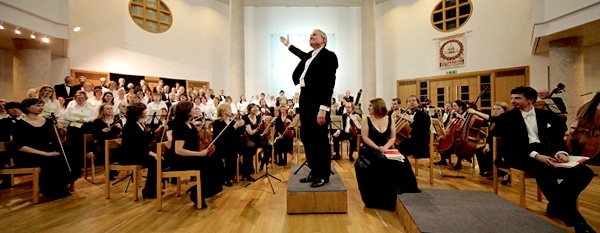
Our diarist Anthea Kreston is back – and with a new string to her bow:
It’s been a busy couple of weeks – my last concert with the Artemis Quartet in Paris was also the first day that I began my new work on podcasting. It’s a lot of fun to do – learning new equipment, researching for interviews, editing and designing the flow of a program. Here I will give a “how to” list of starting your own podcast – from the simplest way to more high-end. And also I will include a list of some of my favorite classical music podcasts to listen to. Enjoy!
Equipment:
This can be, like anything I suppose, a never-ending quest for the next best piece of hardware, the fanciest doo-dad or accoutrement. At one point I was so tangled in my own cords while walking around interviewing people that I ordered a fishing vest and cargo pants online so I could have enough pockets for all my various tidbits. I looked pretty professional, I bet.
You have to decide what kind of podcast you want to do. Face-to-face interviews? Inside or outside? Remote interviews? No interviews – just you?
Here is a list of hardware and software – you can do a podcast for free on your phone and GarageBand or Audacity. Or you can get a professional set-up for around €750. Or you can start small and add as you go.
Recording:
Level 1 – your phone with internal mic
Level 2 – your phone with an external microphone plugged into the bottom (I use a Shure MV88 digital stereo mic – it’s about the size of an apricot and plugs into the bottom of my iPhone, using phantom power from the phone – no batteries, €144). A phone can be nice because you also have the option of a Vlog – Video Blog.
Level 3 – Zoom recorder – I have the H4n Pro (€195). This handy little recorder is amazing – two attached mics can be used at either 90 degrees or 120 degrees, and by putting a fuzzy windscreen on it, you can record outside
Level 4 – audio interface – this is something that attached to your computer to create professional-level audio – it is small enough that you can bring it with you, but it is the foundation of a good home-studio. I use a Focusrite Scarlett 2i2 (€122) which can be used for a single mic or double.
Mics:
Levels 1-2 – See above
Level 3: professional shotgun mic – I use a Rode NTG-4 directional mic (€229). This is a professional-quality mic which is also very versatile. It can be plugged into your Scarlett/computer for your solo voice (or get a second for studio interviews), and also on-location – plug it into one of the 2 inputs on the Zoom H4N Pro for interviews anywhere you want (put a fuzzy windscreen on if you are outside). You zoom can record 4 channels at once – when outside, you can have the Rode for your subject, a clip-on mic for yourself (plugged into the second input) and use the internal Zoom mics set at 120 degrees to catch birds, traffic, audience “peas and carrots”…..at home, get a mic stand (clip or portable for on-location interviews, €10-20), and a pop-filter (removes the hard “s” and “t” sounds (€15)
Level 4:
A pair of clip-on lapel mics. I use Comica CVM V020 XLR Omni-directional (€80 for a pair). They also come with adorable little windscreens (think Tribbles from Star Trek) so you can use them outside. If you have 2 people you are interviewing, you can have each wear one (plugged into the Zoom) and you can use the internal Zoom microphones set at 90 degrees for yourself.
Level 5:
Get yourself a nice pair of headphones. You need these for the Scarlett, for on-location recording, and maybe editing (lots of options – between €75-130).
Of course you can always add on – I have rechargeable batteries, external power supply for the Zoom, high-quality cables, extra SD cards…..
Software:
Level 1: GarageBand or Audacity – these are both free – I use a combination of both for different reasons. You can also upgrade to fancier systems.
Planning and implementing:
The most important thing is to start organized, and remain organized. Folders on your computer with detailed sub-folders – for audio files, writing your material, outlining your programs, planning the interviews, having a library of bios and pertinent historical information.
I use Scrivener for planning (€20). It is a program designed for authors to be able to organize materials, make outlines, and it is totally amazing. I have an entire section on how each of my pieces of equipment works, with their attached instruction manual. I wouldn’t be able to make a podcast without this.
I also do a lot of recording via Skype (free). It’s super convenient, and by recording also with my Zoom (Skype also can record internally – I do both), you can get a super sound.
Other stuff:
Have fun, experiment, get used to how terrible your voice sounds! There are a lot of YouTube things for equipment, organizing your podcast, editing. Resonate Recordings has a nice series. There are endless things I could write here, but this should get you started. Feel free to ask questions – I would be happy to help!
Some of my favorite Classical Podcasts:
Sticky Notes, Joshua Weilerstein
Skip the Repeat, Kai Talim
BBC Music Matters, Tom Service
And – if you want to check out what I have been doing for the last 2 weeks look online for the Pierre Boulezsaal, under Quartet Week. Here is the link https://boulezsaal.de/quartet-week-2019
Have a great week!
